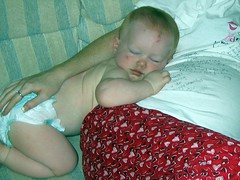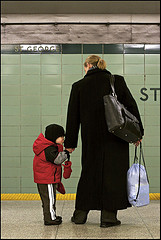
The Wall Street Journal reports on a new study about children and housework out of the University of Maryland, and the surprising trend that they are doing very little of it.
WSJ quips:
Quiz for the day: How much time each day, on average, does a 6- to 12-year-old child spend on household chores?
If you guessed more than a half-hour, you’re wrong. Children are spending a mere 24 minutes a day doing cleaning, laundry and other housework — a 12% decline since 1997 and a 25% drop from 1981 levels, says Sandra Hofferth, director of the Maryland Population Research Center at the University of Maryland, based on a forthcoming study of 1,343 children. In the glacial realm of sociological change, that amounts to a free fall.
And another sociologist’s findings are considered…
Pitching in at home has become a crucial marriage-preservation skill for young men. Studies show parents still assign more housework to girls than boys. Yet these same young women hope as adults to find men who will help out; 90% of 60 women ages 18 to 32 studied by Kathleen Gerson, a New York University sociology professor, said they hoped to share housework and child care with spouses “in a committed, mutually supportive and egalitarian way.” After controlling for other factors, U.S. marriages tend to be more stable when men participate more in domestic tasks, says a study of 506 U.S. couples published in 2006 in the American Journal of Sociology.
And another’s…
Housework has unique value in instilling a habit of serving others. Analyzing data on more than 3,000 adults, Alice Rossi, a proessor emerita of sociology at University of Massachusetts Amherst, found doing household chores as a child was a major, independent predictor of whether a person chose to do volunteer or other community work as an adult. Thus for parents who value service, housework is an important teaching tool.





 A
A